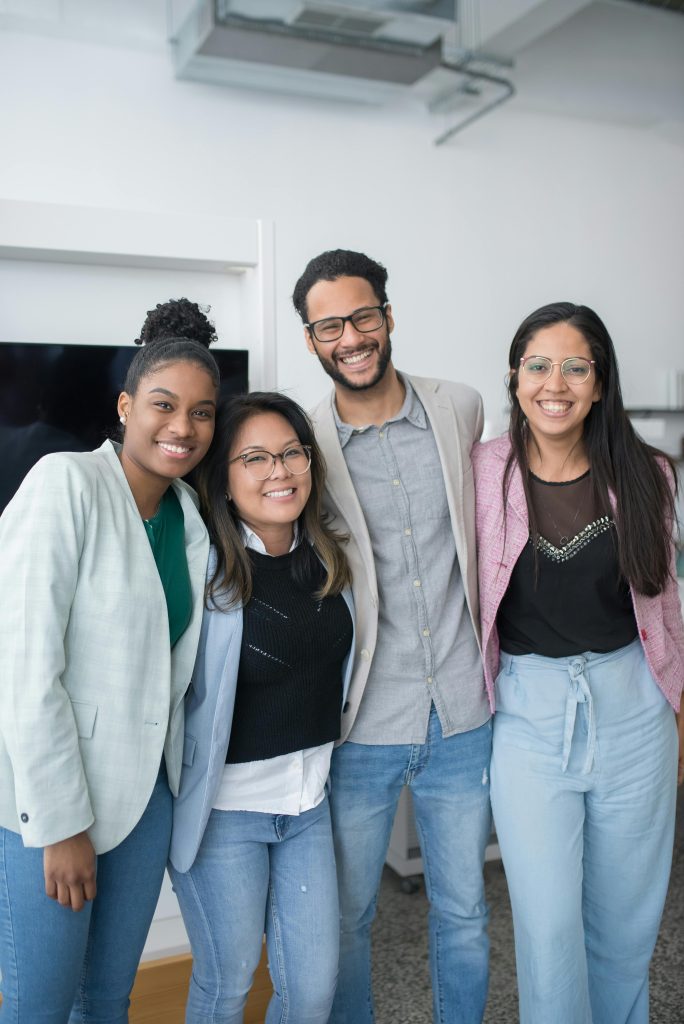Your Chance to Study in the USA: Fulbright Foreign Student Program 2026–2027 Invites Applications!

Dreaming of pursuing your Master’s or PhD in the United States? The prestigious Fulbright Foreign Student Program for the 2026–2027 academic year is now inviting applications through various U.S. Embassies around the world!
This fully funded scholarship offers a life-changing opportunity for graduate students, young professionals, and artists from over 160 countries to study, conduct research, and exchange ideas in the United States. Each year, the Fulbright Program supports over 4,000 individuals, and now could be your chance to join this esteemed global network.
What is the Fulbright Foreign Student Program?
The Fulbright Program, sponsored by the U.S. Department of State, aims to foster mutual understanding between the United States and other countries through educational and cultural exchange.1 The Foreign Student Program enables talented individuals to undertake graduate-level study, research, and artistic pursuits at U.S. universities and institutions.
What Does the Scholarship Offer?
The Fulbright Foreign Student Program is a fully funded scholarship, which typically covers:
- Tuition fees
- Living stipend
- Health insurance
- Round-trip international travel
- Other allowances
Who Can Apply?
Eligibility for the Fulbright Foreign Student Program varies by country. However, general requirements often include:
- Being a citizen of the nominating country.
- Holding a bachelor’s degree or its equivalent by the time of application.
- Demonstrating a strong academic record.
- Possessing sufficient English language proficiency to pursue graduate-level study in the U.S.
- Having a compelling study or research objective.
- Meeting any additional requirements specified by the U.S. Embassy in your country.
Below are the U.S. embassies that have already opened their Fulbright application calls for 2026–27:
1# U.S. Embassy in Madagascar and the Union of the Comoros
The U.S. Embassy in Antananarivo has announced applications are open for citizens of Madagascar and the Comoros to apply for the Fulbright Foreign Student Program.
- Eligibility: Applicants must be citizens of Madagascar or Comoros, hold at least a 4-year bachelor’s degree or equivalent, and demonstrate strong English proficiency.
- Duration: Funding is available for up to two (02) years of full-time graduate study.
- Standardized Tests: TOEFL/Duolingo and GRE/GMAT required only for finalists, covered by the embassy.
- Application Portal: https://apply.iie.org/ffsp2026
- Deadline: The last date to apply for the Fulbright Foreign Student Program at the U.S. Embassy in Madagascar and Comoros is June 15, 2025.
- Announcement: https://mg.usembassy.gov/2026-2027-fulbright-foreign-student-program/
2# U.S. Embassy in Mozambique
The U.S. Embassy in Maputo is inviting talented Mozambican graduates and young professionals to apply for a fully funded master’s degree program in the U.S.
- Eligibility: Open to citizens of Mozambique with a strong academic background.
- Funding: Covers tuition, travel, living expenses, and health insurance.
- Application Deadline: The last date to apply for the Fulbright Foreign Student Program at the U.S. Embassy in Mozambique is June 2, 2025.
- More Info: https://mz.usembassy.gov/2026-2027-fulbright-foreign-student-program/.

3# U.S. Embassy in Chad
While the application for Chad’s Fulbright program recently closed on May 4, 2025, students are encouraged to prepare early for future cycles. The Embassy runs the Fulbright annually and provides detailed instructions and support.
4# U.S. Embassy in Barbados and the Eastern Caribbean
The U.S. Embassy for Barbados and the Eastern Caribbean has also confirmed the call for Fulbright applications for the 2026–2027 academic cycle.
- Eligibility: Citizens of Barbados and Eastern Caribbean countries with strong academic records and English proficiency.
- Status: Applications are currently open.
- Application Portal & Updates:
Key Deadlines:
The application deadlines vary significantly by country. For example, the deadline for the U.S. Embassy in Madagascar and Comoros is June 15, 2025, and for the U.S. Embassy in Mozambique, it’s June 2, 2025.
It is crucial to visit the website of the U.S. Embassy in your country for the specific application deadline for the 2026-2027 academic year.
Don’t Miss This Opportunity!
The Fulbright Foreign Student Program offers an unparalleled chance to pursue your academic aspirations in the United States, gain international experience, and build lasting connections. If you are a qualified graduate or young professional in your country, be sure to visit the website of your local U.S. Embassy for detailed information and start your application today! This could be the first step towards an incredible academic and personal journey.
Decoding the Dream: Is Studying in America Really “Easy”?
The allure of American universities is undeniable. Renowned for their cutting-edge research, diverse campuses, and vibrant student life, they attract students from across the globe, including many ambitious individuals right here. But beneath the glossy brochures and inspiring stories, a crucial question lingers: is it easy to study in America?

The short answer is: no, it’s not inherently “easy,” but it is absolutely achievable with the right preparation, resilience, and resources. Let’s break down the realities:
The Application Maze: The First Hurdle
Getting into a US university is a significant undertaking in itself. The application process is often multifaceted and competitive, requiring:
- Strong Academic Records: US universities look for students with a solid foundation in their previous studies.
- Standardized Tests: Depending on the program, you might need to take the SAT, ACT, GRE, or GMAT, which require dedicated preparation.
- English Language Proficiency Tests: For international students, demonstrating proficiency through TOEFL or IELTS is usually mandatory.
- Essays and Personal Statements: These are crucial for showcasing your personality, goals, and why you’re a good fit for the program. Crafting compelling essays takes time and effort.
- Letters of Recommendation: Securing strong recommendations from professors who know you well is vital.
- Financial Documentation: You’ll need to prove you have the financial means to cover your studies and living expenses, unless you secure a full scholarship like the Fulbright Foreign Student Program 2026-2027, for which applications are currently open through the U.S. Embassy.
The Academic Rigor: Expect a Challenge
Once you’re in, the academic environment can be demanding:
- Challenging Coursework: US university classes often involve a significant amount of reading, assignments, projects, and active participation. Expect to be pushed intellectually.
- Different Teaching Styles: The emphasis on class discussions, presentations, and independent research might be a shift from what you’re used to.
- High Expectations: Maintaining good grades requires consistent effort and effective time management.
The Cultural Adjustment: Navigating a New World
For international students, adapting to a new culture presents its own set of challenges:
- Cultural Differences: From communication styles to social norms, there will be adjustments to make.
- Language Barriers: Even with good English skills, understanding slang, idioms, and different accents can take time.
- Homesickness: Being far from family and familiar surroundings is a common experience.
- Building a Support Network: Making new friends and finding your place in a new environment requires effort.
The Financial Reality: It Can Be Expensive
Studying in the US can be a significant financial investment. Tuition fees, living expenses, and healthcare costs can add up quickly. While scholarships like Fulbright can be a game-changer, it’s crucial to have a realistic understanding of the costs involved.

So, Why Do So Many Still Go?
Despite these challenges, the rewards of studying in the US are immense:
- World-Class Education: Access to top-tier programs and faculty.
- Diverse Perspectives: Exposure to a wide range of cultures and ideas.
- Career Opportunities: Enhanced prospects for global careers.
- Personal Growth: Increased independence, adaptability, and cross-cultural understanding.
Making it “Easier”: Tips for Success
While it’s not inherently easy, you can make your journey smoother by:
- Thorough Preparation: Start early with your applications and research.
- Seeking Support: Utilize international student offices and resources available at universities.
- ** 적극적으로 참여 (Active Participation):** Engage in campus life, join clubs, and make connections.
- Embracing the Culture: Be open-minded and willing to learn about American culture.
- Managing Your Finances: Create a budget and explore all funding options.
- Staying Connected: Maintain ties with home while building a new support system.
The Bottom Line:
Studying in America is a challenging but incredibly enriching experience. It demands hard work, adaptability, and resilience. However, with careful planning and the right mindset, you can navigate the hurdles and unlock a world of opportunities for academic and personal growth. The dream is attainable – be prepared to work for it!